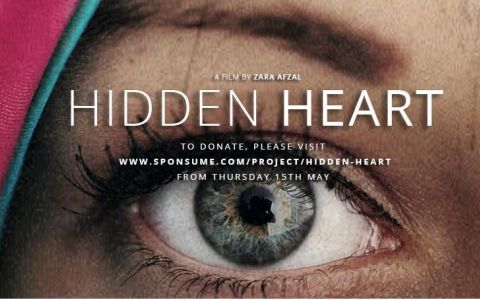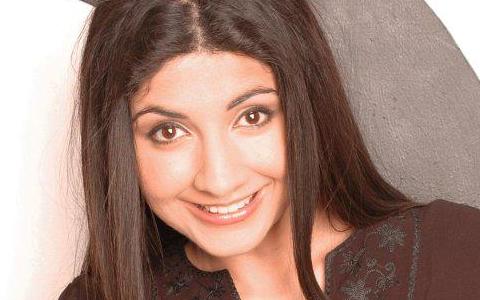Film exposing interfaith marriage ‘violence and isolation’ seeks funding
by - 28th May 2014

A BRITISH film-maker hopes to gather support for a new documentary that highlights the often-hidden plight of Muslim women who marry outside their faith.
Hidden Heart tells the story of four Muslim women who fall in love and dare to cross the faith divide. It is the work of film-maker Zara Afzal and producer Christopher Hird.
The Christian Muslim Forum hosted an event on interfaith marriages in November 2012 in which they reproduced statistics from the 2001 census, revealing that 17,163 Christian women in the UK are married to Muslim men and 4,233 Christian men are married to Muslim women. A further 2,295 Muslim people are married to men and women of other faiths.
In total, 4.7 per cent of married Muslims are in an inter-faith marriage and this number is expected to increase in an ever more multicultural society.
Tehmina Kazi, director of British Muslims for Secular Democracy, and executive producer of the film, said the case of Meriam Yahya Ibrahim, 27, in Sudan is proving just how important re-education and a focus on the plight faced by Muslim women who freely choose their partners is today.
 Ibrahim, who gave birth prematurely to her second child yesterday, is sentenced to death for apostasy. Sudan follows Sharia law and under its criminal code, apostasy is punishable by death.
Ibrahim, who gave birth prematurely to her second child yesterday, is sentenced to death for apostasy. Sudan follows Sharia law and under its criminal code, apostasy is punishable by death.
Under the same law, marriage between a Muslim woman and a non-Muslim man is illegal and constitutes adultery. Ibrahim therefore also faces 100 lashes for marrying a Christian.
To date, more than 620,000 people have signed a petition by Amnesty International urging ministers in Sudan to overturn the sentencing and calls for compassion have come from faith leaders across the world including the Archbishop of Canterbury Justin Welby.
The film – which is currently in production – has received support from the likes of Channel 4 broadcaster Jon Snow, who has donated to the film’s crowdfunding appeal towards its completion and outreach campaign.
‘The story of Meriam Ibrahim just goes to show how relevant this is and how important it is to show the real lives and the personal struggles of women who go through this,’ Tehmina Kazi told Lapido.
 ‘Violence is the most obvious reaction to news of an inter-faith relationship, but there are more subtle and covert reactions like being ostracised from the family or the person they have chosen to marry being completely frozen out. Some of these women face mental health problems as a result and the potential effect on children in the household can be immense.
‘Violence is the most obvious reaction to news of an inter-faith relationship, but there are more subtle and covert reactions like being ostracised from the family or the person they have chosen to marry being completely frozen out. Some of these women face mental health problems as a result and the potential effect on children in the household can be immense.
Backlash
‘There is often a lot of talk about forced marriage. But there is not much on people who choose their own partners and then face a backlash – often violence and isolation. Addressing interfaith relationships plays an integral part of living in a multicultural society.’
She stressed however that this is often far more of a problem for Muslim women who marry outside their faith than it is for Muslim men who do the same.
‘It’s much easier for Muslim men to marry Christian or Jewish women, but if it’s a woman this wouldn’t be accepted because a lot of Muslim society and culture is still very patriarchal and it is believed that the family take the religion of the father and not the mother.’
She said however that this is despite much of the religious and cultural practice in a home being run by the mother and not the father.
Afzal and Hird are hoping to raise £15,000 to be able to turn the current footage into a polished rough cut which will then be distributed and screened at festivals.
Rights
‘It’s a story about love, but from people who come from two different faiths and cultures,’ says Zara Afzal. ‘We are making this film because we know that this is a subject which plays an integral part of our multicultural society in the challenges that first and second generation Muslim women face. We believe that our film could be useful to many groups working for improved community relationships and for the rights of women.
‘I believe that our best chance of making the film with the sensitivity that it deserves is to make it independently – i.e. outside of television – and then distribute it through festivals and independent cinemas to build a following for the film.’
Kazi said that the film-makers had received criticism for their venture. ‘We have had criticism from Muslim individuals, but as with anything that is critical of any community you get lots of fearmongering and conspiracy. I have always been passionate about getting people with different beliefs together, including in personal relationships because I think that’s the best way to overcome certain barriers.’
